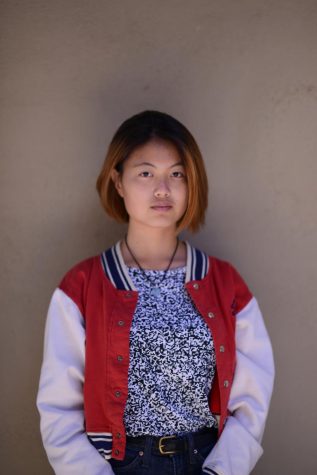New ecology course with trip to Alaska announced
October 27, 2016
Alaska will be the classroom for a new three-week summer course focusing on issues related to climate change offered by the science department, according to an informational presentation on Oct. 21 held by biology teacher Dr. Kate Schafer, upper school biology teacher and physics and science research teacher Chris Spenner.
The new class Human Ecology: Our Place in Nature, an interdisciplinary course, will take place from June 13 to July 5. This program, open to rising sophomores, juniors and seniors, aims to develop skills pertaining to science research, government policy and the humanities, as well as to allow students to choose their own field of study that they will be taking into the course.
“[The students are] going to bring their own skills, so whether they want to take part of the policy-making perspective or debate perspective, or some will come in as a scientist … there’s a lot of big messy issues that we’re going to be looking at,” Spenner said.
Based loosely on Stanford’s Sophomore College: In the Age of the Anthropocene – Coupled Human-Natural Systems of Southeast Alaska, this class will offer a learning experience for both the faculty and students alike.
The upper school course is split in two parts, the first half in California with a camping trip in the Santa Cruz mountains and the second half in Alaska, where the class will visit Juneau, Gustavus and the Inian Islands.
Students can tailor this course to a perspective of their choice regarding climate change.
“One of the exciting things is that potentially, even if this trip happened multiple times, each time would be different based on the people who were participating in it,” Dr. Schafer said.
This course not only allows students to focus on one aspect of climate change, but also enables students to enrich their learning experience by incorporating their own talents and hobbies into the course.
“I do like policy and I do like discussing how one policy can affect something else, but I’m also really interested in research,” Jasmine Wiese (9) said. “I [also] like art and photography, so something I would do would probably be to take photos, draw and just really show people the beauty that’s there and how we’re destroying the beauty.”
Spenner explained that the trip evolved from a focus solely on climate change to an opportunity for students to bring their own talents into this course and take on multiple issues related to climate change.
“It’s not something that we need a piece of technology to solve,” Spenner said. “We need a whole mix of different approaches to even begin to think about it, so I’m hoping that students will see how complex these issues are and see what the advantages are of bringing all those different skills to the problem.”
The trip to Alaska will encourage students to focus not just on issues revolving around climate change in an interdisciplinary way, but on the relationship humanity has with nature as a whole.
In the future, Spenner and Dr. Schafer hope to work with other schools in Alaska and look forward to each unique trip that every summer will bring.
Applications will be held through Google forms and are due Tuesday, and initial enrollment offers will be announced by Nov. 8.


















![“[Building nerf blasters] became this outlet of creativity for me that hasn't been matched by anything else. The process [of] making a build complete to your desire is such a painstakingly difficult process, but I've had to learn from [the skills needed from] soldering to proper painting. There's so many different options for everything, if you think about it, it exists. The best part is [that] if it doesn't exist, you can build it yourself," Ishaan Parate said.](https://harkeraquila.com/wp-content/uploads/2022/08/DSC_8149-900x604.jpg)




![“When I came into high school, I was ready to be a follower. But DECA was a game changer for me. It helped me overcome my fear of public speaking, and it's played such a major role in who I've become today. To be able to successfully lead a chapter of 150 students, an officer team and be one of the upperclassmen I once really admired is something I'm [really] proud of,” Anvitha Tummala ('21) said.](https://harkeraquila.com/wp-content/uploads/2021/07/Screen-Shot-2021-07-25-at-9.50.05-AM-900x594.png)







![“I think getting up in the morning and having a sense of purpose [is exciting]. I think without a certain amount of drive, life is kind of obsolete and mundane, and I think having that every single day is what makes each day unique and kind of makes life exciting,” Neymika Jain (12) said.](https://harkeraquila.com/wp-content/uploads/2017/06/Screen-Shot-2017-06-03-at-4.54.16-PM.png)








![“My slogan is ‘slow feet, don’t eat, and I’m hungry.’ You need to run fast to get where you are–you aren't going to get those championships if you aren't fast,” Angel Cervantes (12) said. “I want to do well in school on my tests and in track and win championships for my team. I live by that, [and] I can do that anywhere: in the classroom or on the field.”](https://harkeraquila.com/wp-content/uploads/2018/06/DSC5146-900x601.jpg)
![“[Volleyball has] taught me how to fall correctly, and another thing it taught is that you don’t have to be the best at something to be good at it. If you just hit the ball in a smart way, then it still scores points and you’re good at it. You could be a background player and still make a much bigger impact on the team than you would think,” Anya Gert (’20) said.](https://harkeraquila.com/wp-content/uploads/2020/06/AnnaGert_JinTuan_HoHPhotoEdited-600x900.jpeg)

![“I'm not nearly there yet, but [my confidence has] definitely been getting better since I was pretty shy and timid coming into Harker my freshman year. I know that there's a lot of people that are really confident in what they do, and I really admire them. Everyone's so driven and that has really pushed me to kind of try to find my own place in high school and be more confident,” Alyssa Huang (’20) said.](https://harkeraquila.com/wp-content/uploads/2020/06/AlyssaHuang_EmilyChen_HoHPhoto-900x749.jpeg)








